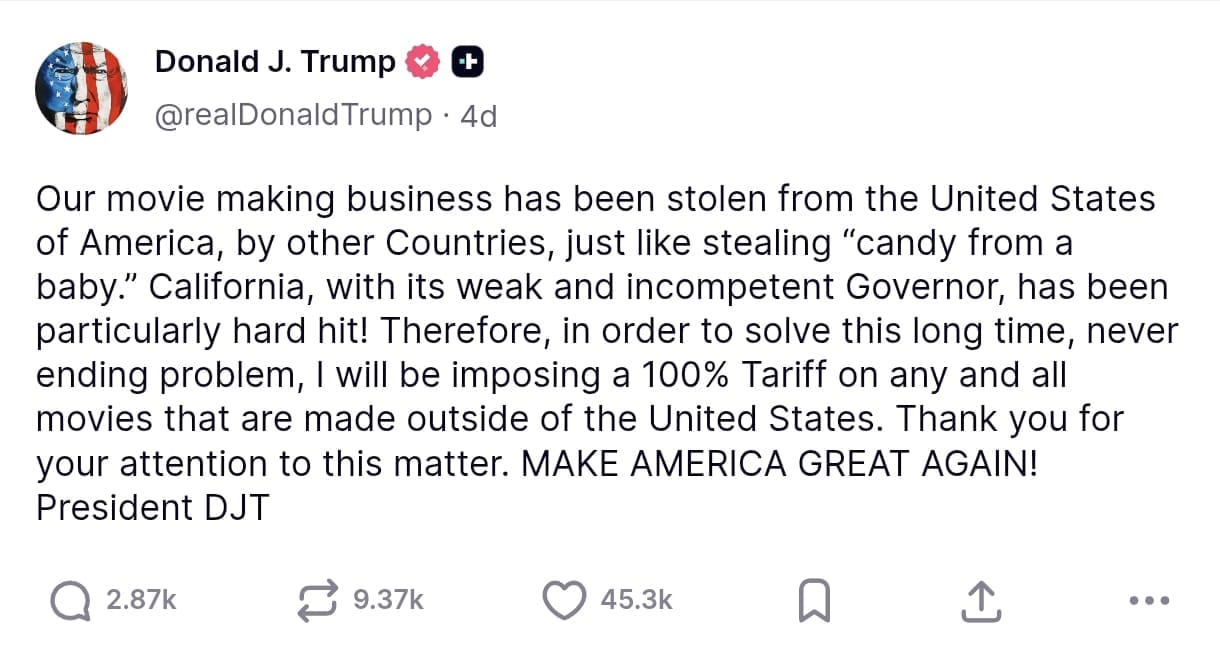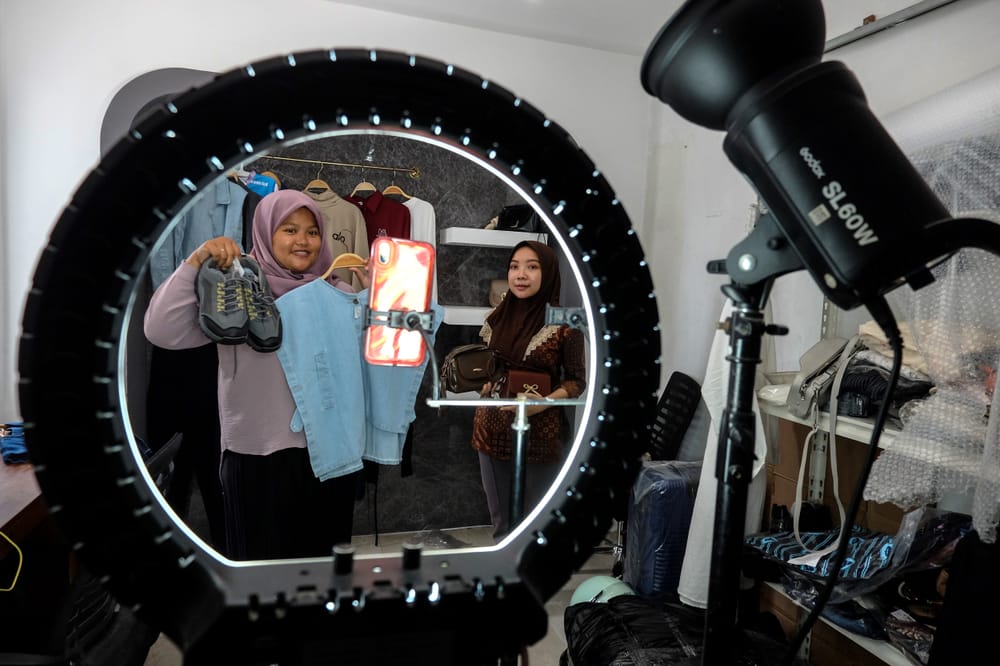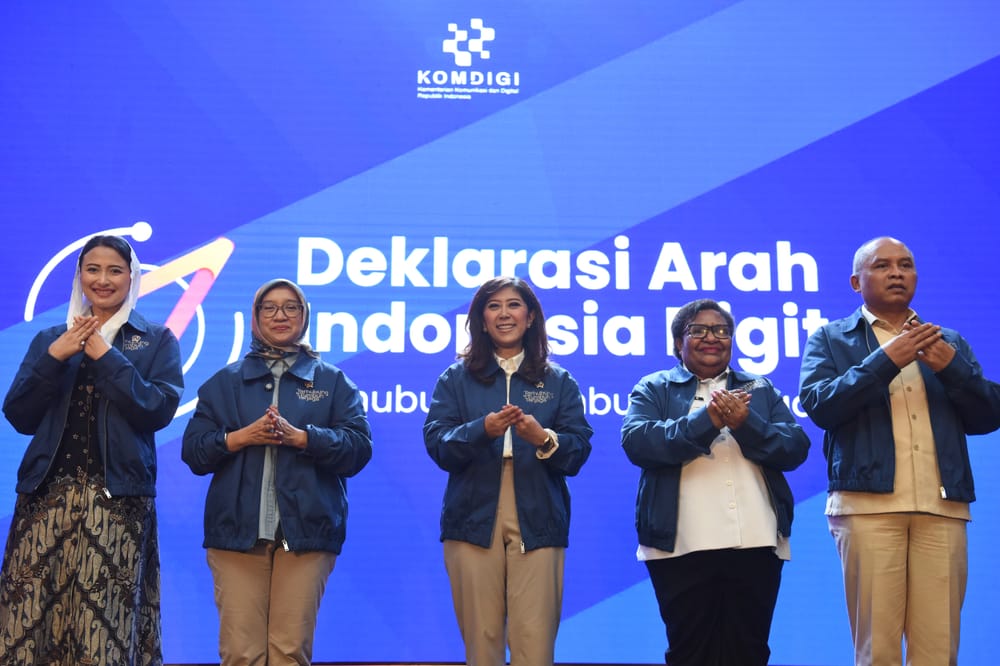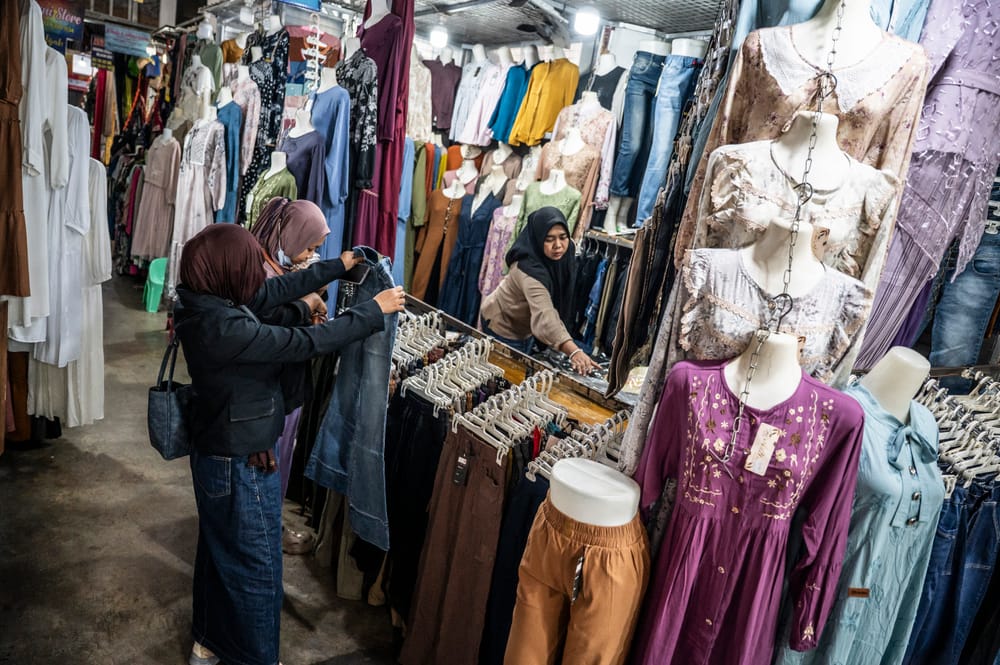Indonesian filmmakers are unlikely to be significantly impacted by U.S. President Donald Trump's plan to impose a 100% tariff on all films produced abroad and shown in the U.S. The president's move is considered confusing for Hollywood, the world's film production center in the United States itself.
The plan was announced by President Donald Trump via his personal Truth Social account. This policy creates significant uncertainty for film production houses that rely on international box office revenue, as well as Indonesian filmmakers planning to distribute their films in the United States.
"Our film business has been stolen from the United States by other countries, like stealing 'candy from a baby'. California, with its weak and incompetent governor, has been hit very hard," Trump wrote on Truth Social, Monday (29/9/2025).

This policy also applies to all films entering America, following an announcement he made in May 2025. Therefore, to encourage more film projects to be done in America, President Donald Trump will raise tariffs by 100%.
"Therefore, to address this long-standing and never-ending problem, I will impose a 100% tariff on all films produced outside the United States," he continued.
Several Indonesian films have also been screened in United States cinemas, such as Badarawuhi di Desa Penari and the comedy Agak Laen. With this policy, Indonesian filmmakers may potentially cancel their plans to distribute films to the United States.
However, renowned Indonesian film producer, Hanung Bramantyo, explained that Indonesian filmmakers can actually reap profits many times over from the number of viewers and screenings in local cinemas, without having to distribute their films to other countries, in this case, the United States.
"Indonesian films are already many times more profitable with the Indonesian market reaching 10 million viewers compared to exporting Indonesian films. For example, like my film, Ipar Adalah Maut, 4.6 million viewers already generate an income of around Rp100 billion and above, while production costs are in the range of Rp15-18 billion," said Hanung, Saturday (4/10/2025).
Indonesian films already have their own formula and uniqueness that makes them sell well in the country. This formula may not necessarily be well-received in other countries, as each country has its own preferences that are not necessarily the same as Indonesia's.
"So indeed, Indonesian film productions are currently watched by Indonesian viewers, almost 100%. Only after that, there is a desire to market them abroad, Malaysia, Philippines, Cambodia, and so on. That's usually a bonus, so not selling to them, including the United States, is not a problem," he explained.
Therefore, Hanung believes that President Donald Trump's move does not have a significant impact on the Indonesian film industry at this time.
"If they want to impose import taxes on films from outside America to them, it won't have any impact for now," he continued.
The success of Indonesian films in the country also does not mean that distribution to the international scene is unimportant. Film is considered one of the most effective tools in cultural diplomacy and introducing Indonesian culture to other countries.
Film has the power to convey the values, norms, lifestyles, and identity of a nation that can have a major impact, including on a country's economy. Indonesian filmmakers continue to strive to market their films abroad, one way is through film festivals.
"If the exposure aspect of penetration abroad is important, yes. But for now, what we need is just a kind of recommendation. Assessment from outside parties," Hanung explained.
If there are filmmakers in Indonesia who want to distribute their films abroad, thorough research and strategy are needed, because each country has its own culture. This is done so that the films produced can be in accordance with the culture in that country and receive a good response from foreign audiences.
"Because each country in the world has its own specifications, its own needs. We have to be able to determine the market. For example, if I want my film to penetrate Hollywood, then we have to really study what Hollywood is like, what the system is like," he said.
The screening of a film made by the nation's children in the United States is also not necessarily the ultimate goal of the filmmaking profession. If you want to excel and gain international recognition, according to Hanung, Indonesian films must first succeed in their own country, and then expand to neighboring countries and also Asia.
Only from there will the possibility of Indonesian films succeeding in the United States become greater and have higher competitiveness.
"We just win Asia. In other words, being the champion of Asia is extraordinary. We are still in Southeast Asia and haven't won yet, Thailand was able to enter the top 15 at the Oscars yesterday, Indonesia has never been able to enter," he revealed.
Therefore, according to Hanung, the increase in film tariffs from President Donald Trump does not have a significant impact. However, if neighboring countries implement similar policies, then this will create a new problem for Indonesian cinema.
"For example, the closest country, Malaysia, if Malaysia raises import tariffs on films for Indonesia, Indonesia will be like, 'Oh no, we can't get Malaysian viewers, it's a bit tough,'" said Hanung.
Read also:

The possibility of imposing film tariffs from the United States and even other countries is also not considered the main problem for the film industry in Indonesia. Hanung explained that strong regulations are needed to support the domestic film industry, such as regulations on film screening times in cinemas and also a break time to enjoy them on streaming services.
The short time between film screenings in cinemas and streaming platforms is considered to reduce public interest in going to cinemas, which can have a major impact on the development of the film industry.
"Well, that makes most viewers prefer to wait for it on OTT (Over-The-Top) rather than going to the cinema. If the association's request is not strong enough, maybe the government can step in to help. So, the problem with national films, before we go to export, the regulations here must be fixed first, especially the screening time regulations," he said.
In agreement with him, film observer Hikmat Darmawan, explained that showing Indonesian films in the United States does not necessarily provide good economic value. This is because the film market in the United States has a layered infrastructure in terms of distribution.
"For example, the film Badarawuhi is playing in several cinemas in America, so formally it has entered cinemas there. But informally, whether it already has sufficient economic value to enter there, is not certain," said Hikmat.
Indonesian films that have also competed in international film festivals are also considered to not have sufficient ability to enter the American film market and even become a major concern.
Hikmat explained that Indonesia has always been pioneering in introducing Indonesian culture through films distributed globally. Every time an Indonesian film or actor starts appearing on the international stage, there is always excessive euphoria without being supported by strengthening the domestic industry itself.
"We feel proud that we entered the Oscars, but there is no special effort to lead it. So that hasn't become a market either. So from the past, when talking about the American market, it hasn't been serious except for individual efforts," he explained.
The films Agak Laen and Badarawuhi, which were recently shown in a number of American cinemas, are also considered not to provide momentum for Indonesian filmmakers to follow in their footsteps. The specific genre of the two films is also said to only be enjoyed by Indonesians living abroad, and has not attracted the attention of outsiders.
"If it's said to be 100 screens, 200 screens, yes, maybe (it has an effect). But if it turns out that Badarawuhi is in an area where there are many migrants. So it is very likely that the audience is Asian or even more specifically Indonesian," he continued.
Hikmat also sees that the main income from films in Indonesia is in its own country. Only screenings and income from neighboring countries in Southeast Asia are counted as additional bonuses.
"If we want to talk internationally, not America, talking about the international market is Southeast Asia, that's quite good. Even that is a second layer revenue stream, the main income remains local," explained Hikmat.
Trump's policy itself is considered a double-edged sword. As a result of the planned policy, Hollywood is now panicking, because many big American films are actually made in other countries.
"The ones who lose out are the Americans themselves. Actually, Hollywood is the one who loses out in films, Mission Impossible for example, shooting in several countries. Indonesia doesn't need to worry too much about the trade war," he concluded.







